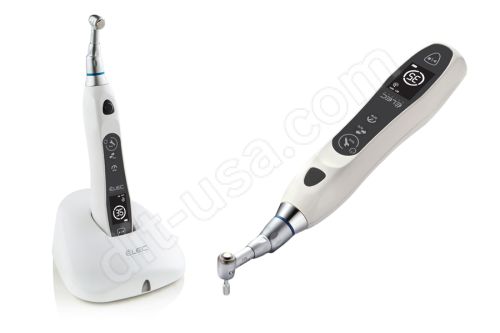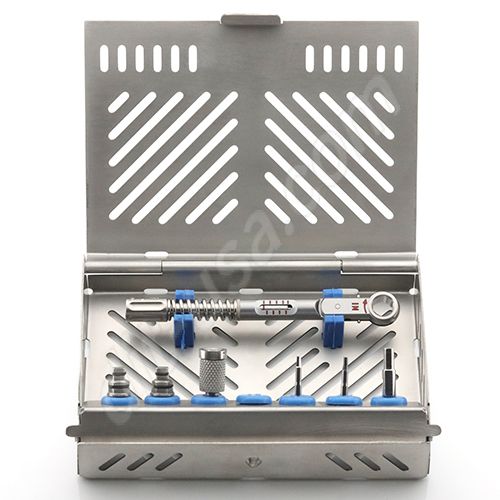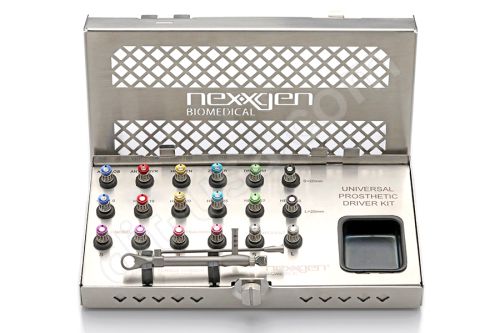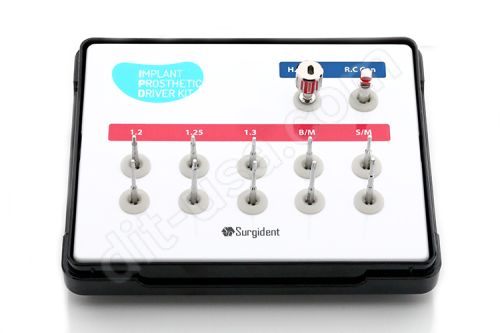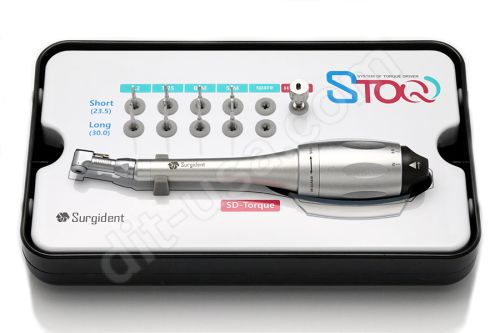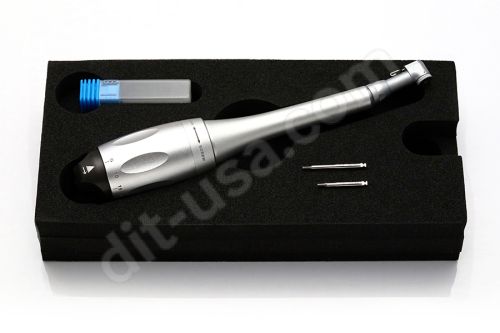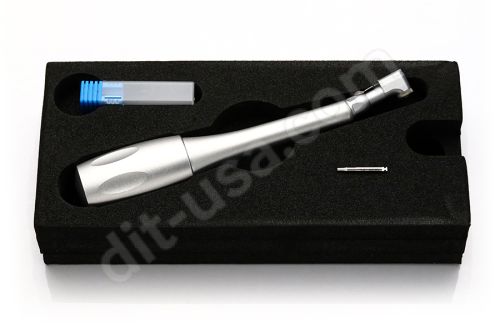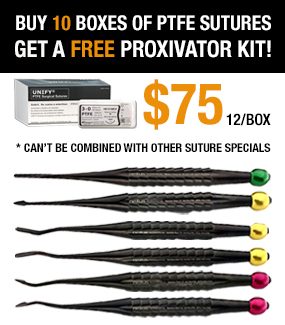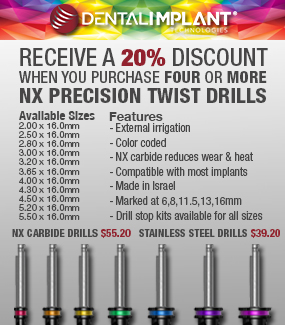-
-28%OffSpecial Price $1,150.00 Regular Price $1,599.00
-
-28%OffHi-tec Implants Prosthetic KitSKU# HPKSpecial Price $495.00 Regular Price $685.00
-
Special Price $503.13 Regular Price $718.75
-
Implant Restorative Prosthetic Driver KitSKU# SD-IPD$350.00
-
-26%OffImplant Restorative Prostetic Torque Wrench KitSKU# SD-STOQSpecial Price $850.00 Regular Price $1,150.00
-
Posterior Contra Angle Torque WrenchSKU# SD-TORQUE$595.00
-
newPosterior Contra Angle RatchetSKU# SD-TORQUELESS$299.00
The Highest Quality Implant Wrenches
In the field of implant dentistry, both precision and efficiency are paramount. Dental implant procedures require meticulous attention to detail. Treatment planning is based on years of education, the skill of the clinician, examinations, scanning technologies, and knowledge of best practices. In addition, the tools used during the procedures to place and maintain implants play a crucial role in achieving successful outcomes. One of the most important instruments used during dental implant prosthetic placement and maintenance is the dental implant torque wrench. It’s essential that clinicians understand the advantages of high-quality implant wrenches, their ability to simplify workflow, the best practices for their usage, and the clinical advantages of the newly developed wireless/cordless options.
Simplifying Clinical Workflow with High-Quality Implant Wrenches
The integration of high-quality implant wrenches into dental practices has revolutionized the workflow for dentists and dental surgeons. These specialized tools are designed to provide accurate torque control, ensuring proper implant stability, and minimizing the risk of complications like implant fracture or damage to the prosthetic screw. By offering a simplified and efficient approach, implant wrenches enhance the precision and effectiveness of the dental implant procedure, ultimately benefiting both the clinician and the patient.
When modern dental implants were first developed in the 1960s, there were limited tools and instruments available. Today, there is a wide selection of implant wrenches to choose from depending on the implant system, preferred style, budget, and preference for corded or wireless/cordless options.
Dental Implant Technologies offers a range of carefully selected dental implant torque wrenches. This lineup has been curated based on quality, versatility, and performance. Our implant wrenches are compatible with our Hi-Tec Implants and can be universally applied to other implant systems so that clinicians are covered in any potential case. Our available implant wrenches offer excellent handling and durability as well as ease of use and reliability. Whether selecting our manual torque wrenches or wireless options, the chairside workflow can be enhanced by high-quality tools.
Best Practices for Using Implant Wrenches
Clinicians can follow some basic industry best practices to maximize the value of implant wrenches. Here are some key recommendations for practitioners.
- Choosing Torque Value - The selection of an appropriate torque value is essential for achieving optimal implant and prosthetic stability. This decision should be based on factors such as implant type, bone quality, and the specific requirements of the patient. Torque adjustable wrenches allow for an efficient workflow without the risk of over-torquing.
- Try a Wireless Wrench - Clinicians that have found difficulty with manual wrenches can try automatic wireless torque wrenches. These closely regulate the applied torque to prevent injury to the patient or damage to any of the implant components. Torque is the most important aspect of dental implant placement and maintenance. With the right tools, there is minimal room for error.
- Actively Monitor Torque Levels - Many high-quality implant wrenches feature torque indicators, which provide real-time feedback during the procedure. Monitoring the torque levels allows the dentist to maintain control and prevent over or under-tightening of the implant components.
- Sterilizing Equipment – Implant wrenches should be kept clean and sterilized between uses. Manual wrenches can be fully immersed for ultrasonic cleaning and then sterilized with an autoclave. Wireless wrenches can be partially disassembled to be cleaned and sterilized. The best implant wrenches are made from high-quality surgical-grade materials and are designed with easy cleaning and sterilization in mind.
Wireless vs. Manual Implant Wrenches
Dental professionals can choose between wireless and manual wrenches. Both can be used effectively for dental implant placement and maintenance procedures, although there are also unique advantages when considering either option. Dental Implant Technologies offers both types of implant wrenches available to order today.
- Manual Implant Torque Wrenches - These are an excellent choice for clinicians seeking the most affordable implant wrenches without sacrificing precision or reliability. Manual implant wrenches were the industry standard before the development of innovative wireless products. These are ideal for clinicians who sometimes treat patients with dental implants and have only an occasional need for a torque wrench.
- Wireless Implant Torque Wrenches - Recently, reliable wireless implant wrenches have become available. These are arguably the best choice for clinicians that routinely place and maintain dental implants. They offer the benefits of smooth and precise motorized control without the need for a tether to power the motor. Wireless torque wrenches use rechargeable batteries and can include advanced features like live torque feedback displayed on a screen, as well as easy customization of settings on the handheld interface.
Clinicians who primarily focus on treatment with dental implants can enjoy the benefits of wireless torque wrenches. These wrenches reduce chairside stress and fatigue and are ideal for practitioners who might perform several implant procedures in a single day. Although these wrenches are costlier than manual options, they are also more convenient and can be more accurate in some cases. Wireless systems are also ideal when a clinician routinely works with varied implant systems with unique torque requirements.
Should Clinicians Purchase Handpieces and Prosthetic Kit Drivers Individually?
Implant wrench handpieces are available individually, as are prosthetic drivers in prosthetic kits. Determining whether to buy tools and instruments individually or in combined packages is at the discretion of the clinician. There are some simple guidelines to follow to determine whether it’s ideal to buy single units or everything in a prosthetic kit with a handpiece.
- Determine what’s currently in the surgical inventory. Clinicians that already have prosthetic drivers suited to manual wrenches can simply purchase a wireless torque wrench without needing to worry about individual drivers.
- For new practices or clinicians who are transitioning to specialize in dental implants, it can be beneficial to purchase a torque wrench and drivers in a single prosthetic kit. Not only is this more convenient, but it also often works out to be more cost-efficient.
- Clinicians who are unhappy with their current tools or instruments can purchase a prosthetic kit to ensure that all the essential drivers are available.
- Compatibility should also be considered. While many clinicians prefer certain brands and systems for dental implant treatment, there isn’t always the luxury of choice when treating patients who already have dental implants. Universal prosthetic kits are available with a range of hexagonal, unigrip, and star drivers. This provides the widest compatibility with popular implant systems from leading manufacturers.
What are the Most Important Drivers to look for in a Prosthetic Kit?
Universal prosthetic kits typically include hexagonal, star, and unigrip type drivers. With these attachments, it’s possible to install and service the vast majority of implant connections available on the market today.
- Hexagonal Abutment Screws - These are the most widely used types today. Implants are available with internal and external hex designs. The difference is that internal types have a hexagonal connection inside the implant fixture. Hexagonal abutment screws have a hex-shaped head that matches the corresponding fixture. This design allows for excellent stability and precise positioning. It has been widely adopted by the top implant manufacturers because of its torque transfer properties, security, and resistance to rotational forces.
- Unigrip Abutment Screws - This system was developed as an alternative to the hexagonal system. Unigrip has additional anti-rotational features like grooves and slots, which prevent the screw from moving in the implant fixture. This can result in enhanced stability over time for more durable prosthetic restorations. The unigrip design is often used for systems where there are angled or multi-unit abutments. The enhanced stability can benefit these more complex designs.
- Torx and Star Screws - A growing number of implant systems use tox or star screws. These six- pointed screws are matched to an internal socket in the implant fixture. The advantages of Torx and star systems are significant on the clinician’s side. With more contact points, Torx has excellent torque resistance and will resist stripping or rounding out. This means that even if the procedure to secure an abutment is imperfect, there should be no damage to the screw, which minimizes the risk of fracture or stripping. Torx and star systems are mostly used for implants that prioritize anti-rotation performance over other properties. Straumann® implants, for example, use the star-type abutment connection.
Understanding that there are several driver options for a range of dental implant systems, it becomes more obvious why clinicians would need prosthetic kits that offer a range of drivers in both short and long lengths.
Dental Implant Technologies has the most reliable prosthetic kits that are suited to our dental implant torque wrenches.
Clinicians Will Find the Ideal Solutions at Dental Implant Technologies
When searching for a simple manual wrench or a wireless implant wrench, Dental Implant Technologies has options for clinicians. Choose from a range of the most reliable dental implant torque wrenches and enjoy the performance of precision tools developed by the world’s best medical device companies.


